Bryan Garner tweets that on “Saturday you can bid on three notable mementos from Justice Scalia’s estate. He valued two of these items highly.” These items are truly remarkable.
First, you can bid on a baseball autographed to Justice Scalia from Joe DiMaggio!!!
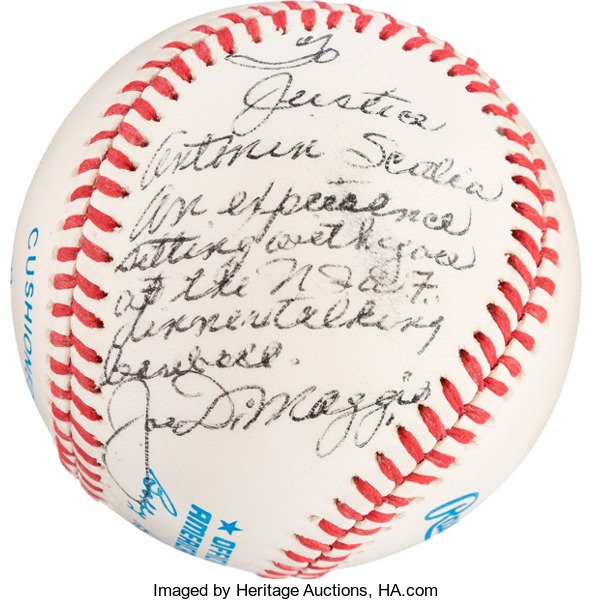
Here is the item description;
Justice Antonin Scalia: A Baseball Personally Inscribed to the Justice by Hall of Fame Baseball Player DiMaggio.The signing took place at the annual National Italian American Foundation dinner. As two of the country’s most prominent citizens of Italian descent, the two men were celebrated guests. In black ballpoint DiMaggio has neatly written: “To Justice Antonin Scalia. An experience sitting with you at the NIAT [sic] dinner talking baseball. Joe DiMaggio.” Who knew that the distinguished Justice was a fan of America’s favorite sport? Condition of ball and writing virtually mint, with slight smudging of the ink. Bobby Brown Official American League Baseball. A treasure for Americana collectors and autographed baseball collectors alike. Consigned for auction by the Estate of Justice Antonin Scalia.
You can read more about the evening in 1989 in the Washington Post and the Chicago Tribune. Scalia referred to DiMaggio as “one of his Italian-American heroes.” It is remarkable to think that at the time, Scalia was something of a diversity pick for the Supreme Court, as the first Italian-American. Today, he is scoffed at by the left as another white guy.

The second item for auction is even more remarkable: a four-page letter from Frank Sinatra about libel law! The letter is dated October 28, 1986, which was almost exactly one month after he took office on September 26, 1986.
To continue a point I mentioned before, Sinatra wrote about how Scalia’s heritage could help him understand the plight of exploited minorities.:
“I could not help but fantasize that because of your background, would bring to the Court not only your great legal knowledge, but some deep-seated sense of natural justice that I think (perhaps incorrectly) is possessed by those of an ethnic background whose more recent ancestors had to deal with inequities.”
A wise Italian, perhaps?
Back to the First Amendment. Sinatra writes that “what has troubled me for many years is my opinion that the law of this country with respect to libel and slander is unfair.” Specifically, he cites the “malice” standard, where the “public figure,” and “not the person who wrote the falsehood, is placed on trial.” (Indeed, New York Times v. Sullivan places the burden of proof on the plaintiff to demonstrate actual malice).
From a layman’s point of view, I cannot see how anyone can conclude that it is anything but unfair for the media to have the right to write about somebody and then seek refuge in the fact that the injured person is unable to prove “malice.”
Ol’ Blue Eyes even made it personal:
It is absolutely unrealistic for the law not to recognize that one of the principal objectives of the media is to do a “hatchet job.” If either you or Chief Justice Rehnquist were not aware of that fact, I am positive that during the recent confirmation process, both you and the Chief Justice and members of your families must have recognized the accuracy of that statement.
Indeed, citing “computers having information that can be retrieved in 60 seconds,” he found “lame” the “excuse” that the actual malice standard was necessary to allow newspapers to “report quickly” “without checking it carefully.” To that end, he quotes Holmes’s “fire in a crowded theater” line. The conclusion is remarkable:
This letter is written with the hope that should you ever have to decide cases of this type, you will not only consider the legal problems involved but that you will apply a lay person’s standards of what is ‘”fair” and what is “unfair.”
I suspect Sinatra may have had some help with this letter, as the case name Sharon is underlined. Most non-lawyers would not know this citation style.
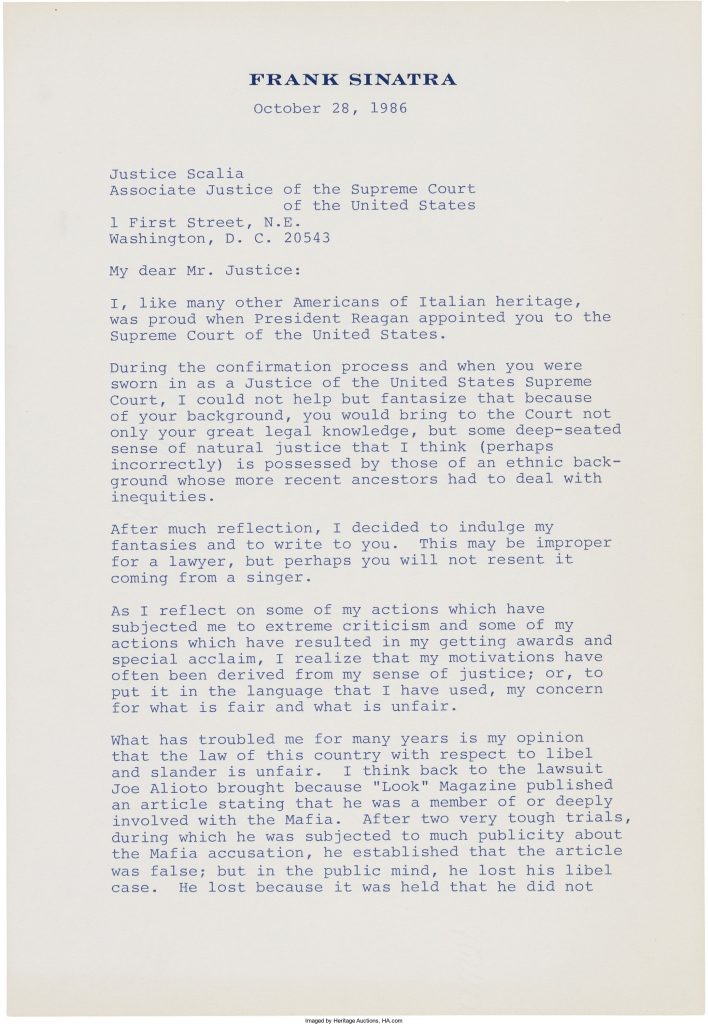
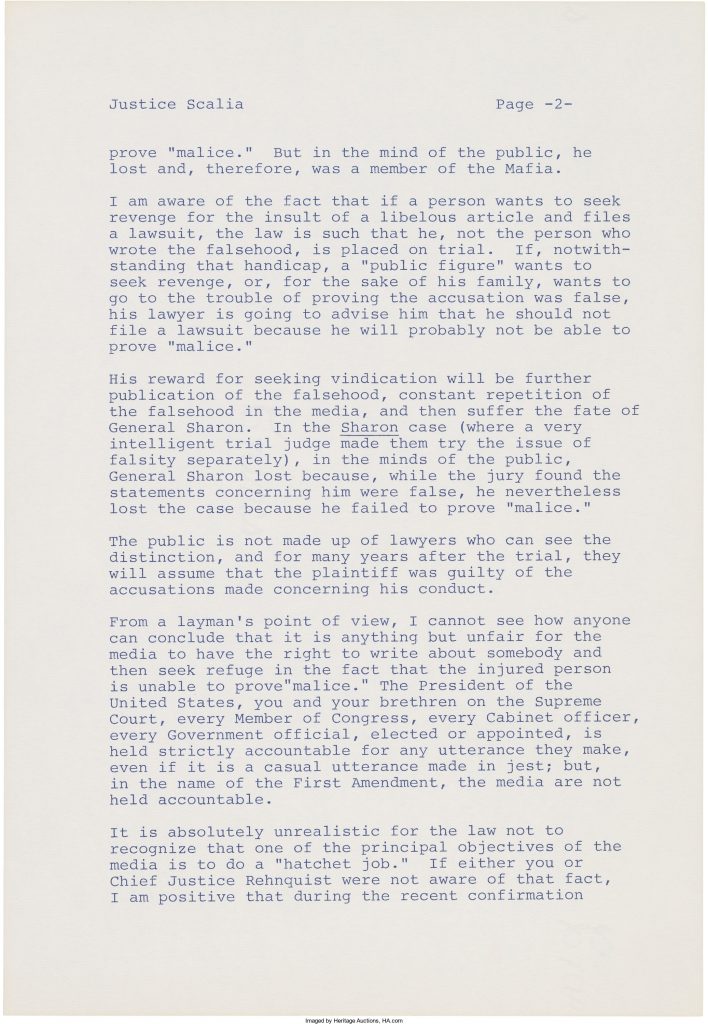
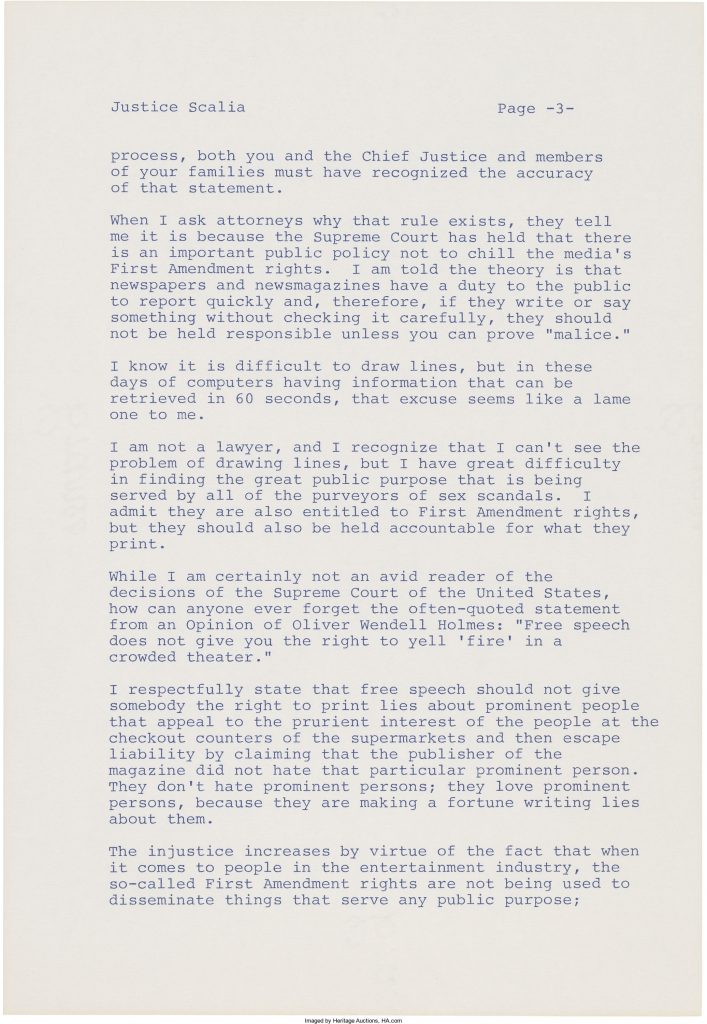
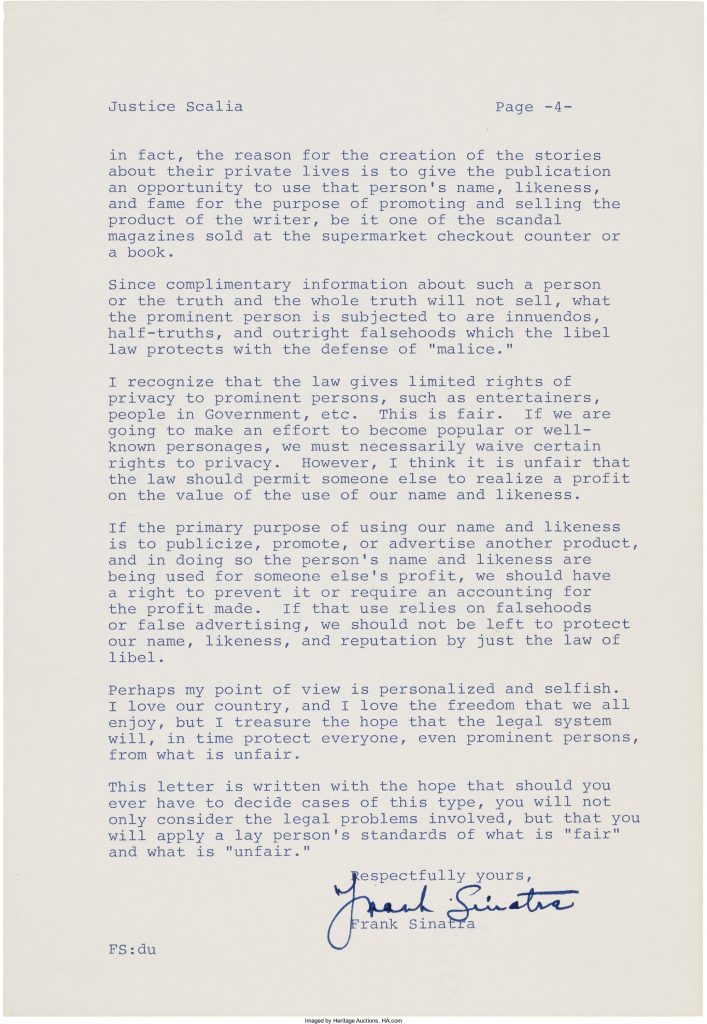
I hope someone with money and love of Scalia takes good care of these items.